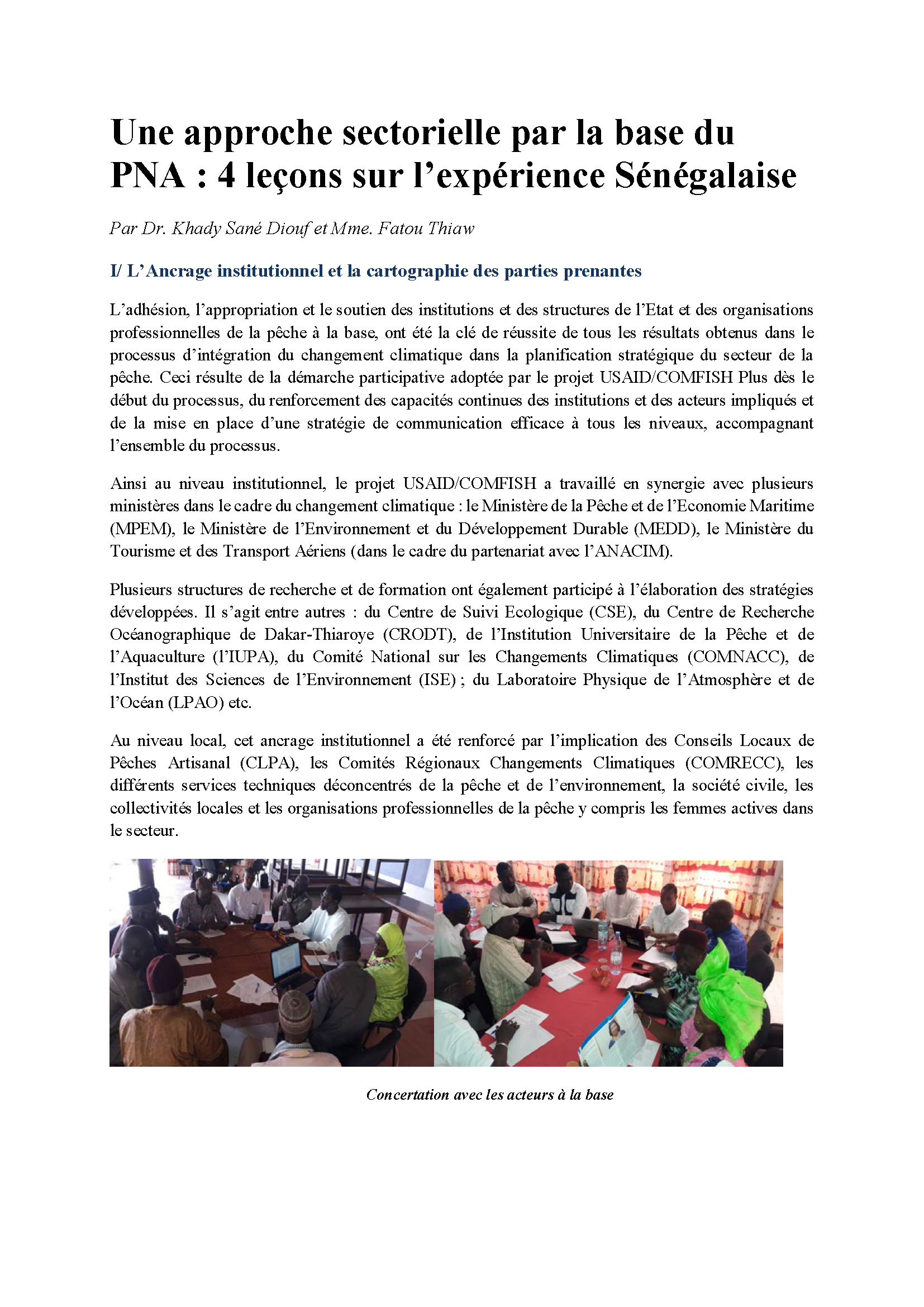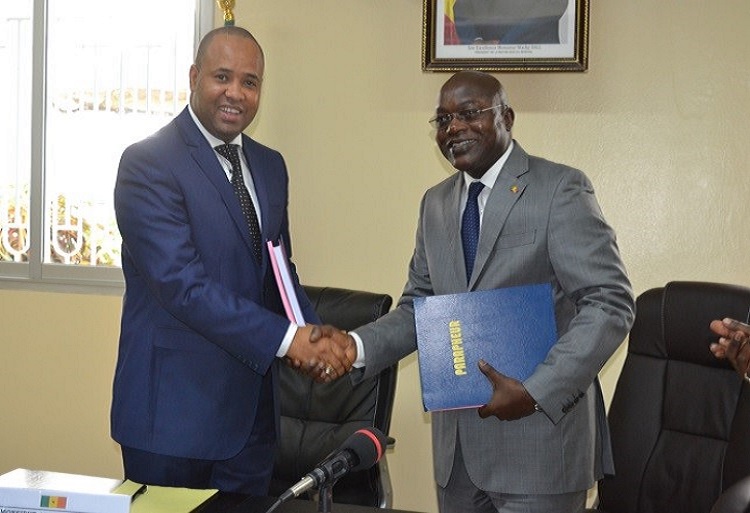
In October 2017, the NAP Global Network invited Dr. Khady Sané Diouf (Project Director) and Ms. Fatou Thiaw (Climate Change Officer)—representatives from the Collaborative Management for a Sustainable Fisheries Future in Senegal (COMFISH) initiative—to share their experience on Senegal’s NAP process during a regional meeting organized in Lomé, Togo.
Senegal is taking a sectoral approach to its NAP process with the development of sectoral NAPs—this process was first successfully completed in 2016 in one of the pillars of the country’s economy: the fisheries sector.
While such a sectoral approach to the NAP process is not unique to Senegal, a distinction here is that the process started from the bottom-up, with local adaptation plans informing the development of the NAP for the fisheries sector.
Generating approximately 600,000 direct and indirect jobs (in 2015), the fisheries sector in Senegal greatly contributes to the nation’s food security, with over half of the total animal protein intake coming from it. However, the coastal zone—on which it largely depends and where two thirds of the population lives—is particularly vulnerable to climate change.

Coastal erosion is already rendering a large part of the coastline uninhabitable. Observed rising sea levels, higher temperatures and ocean acidification are also associated with increased flooding, more intense storms, shifts in fish populations, and the intrusion of saltwater in coastal aquifers and soils, among other observed negative impacts.
To increase the resilience of Senegal’s coastal communities to climate change, the USAID/COMFISH initiative was launched in 2011. It is supported by USAID and implemented by the Coastal Resources Center at the University of Rhode Island in the United States. The goal of the project is to support the Government of Senegal’s efforts to achieve reform of its fisheries sector and increase the resilience of fishing communities and fishing livelihoods. COMFISH does this by strengthening the enabling conditions necessary for improved governance, improved access to science for decision making, and identifying and taking actions that increase climate resilience. Starting with the development of six local climate adaptation plans, the project culminated in 2016 with the formulation of a NAP for the entire fisheries sector.
Four key lessons were drawn from this experience, for better integration of climate adaptation in local and national planning documents.

1 | Understanding and involving actors at all levels
The need to involve institutions at all levels to work together on the issue for a given sector has been of paramount importance to the success of all adaptation planning exercises. Linked to this, the process revealed the importance of developing a good understanding of all the stakeholders involved in national and local climate change activities and their commitments. Consideration of the concerns and adaptation needs of all stakeholders involved at both the national and local level is needed for planning that is inclusive and sustainable.
2 | Identifying the most effective leverage/entry point
It is important to find the most effective strategies to influence the sector concerned to integrate climate adaptation into its policies and strategies. One of the strategies is to work for the ownership of the whole process by grassroots communities, which in the case of Senegal eventually became a means of pressure for the central authorities to join the process.
3 | Establishing coordination mechanisms at all levels
For sustainability reasons, but also for harmonization of implementation actions between the national and local levels, it is imperative to create coordination committees on climate change. In Senegal, a national climate change fisheries platform and local committees have been set up in 2015 to support the implementation and monitoring and evaluation of the NAP fisheries and local climate change adaptation plans, respectively.
4 | Ongoing technical mentoring at all levels
As climate change is a complex issue, technical (and financial) support is needed at all levels. For example, the COMFISH project has been supporting the strengthening of institutional and stakeholder capacities at all levels (local, regional and national) to implement an ecosystem-based approach towards sustainable fisheries, taking into account climate change impacts in the fisheries sector.
Any opinions stated in this blog post are those of the author and do not necessarily reflect the policies or opinions of the NAP Global Network, its funders or Network participants.
Read more about our work on sector integration of adaptation considerations.
Interested in joining the Network as a participant? Sign up here.